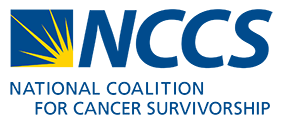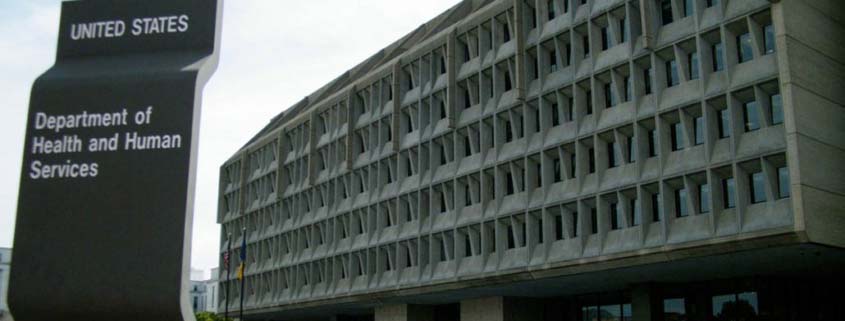NCCS Recommends Making COVID-19 Medicare Telehealth Coverage Expansion Permanent
NCCS recently submitted a comment letter to the Centers for Medicare and Medicaid (CMS) regarding the Medicare physician fee schedule for calendar year 2021. The comment letter focuses on telehealth-related provisions of the proposed rule, as we are learning from our findings from our Telehealth Project that both patients and providers need more tools and strategies to maximize the benefits of telehealth. In the letter, we applaud CMS for expanding the list of services covered in Medicare telehealth services. We also recommend that the flexibilities granted during COVID-19 be permanent.
“…Patients shared that telehealth services offer convenience and lower costs associated with travel and time away from work and family. We are persuaded that a cancer care system combining telehealth services with face-to-face care can be of high quality, efficient, and responsive to the needs of patients. We will pursue legislative solutions in cases where CMS does not have adequate authority to extend regulatory flexibilities beyond the public health emergency.”
Read the entire comment letter below.
Download the Comment Letter [PDF] »

October 5, 2020
The Honorable Seema Verma
Administrator
Centers for Medicare & Medicaid Services
Department of Health and Human Services
Hubert H. Humphrey Building
200 Independence Avenue SW Washington, DC 20201
Submitted electronically at www.regulations.gov
Re: CMS-1734-P, Medicare Program; Revisions to Payment Policies under the Physician Fee Schedule and Other Revisions to Part B for CY 2021
Dear Administrator Verma:
The National Coalition for Cancer Survivorship (NCCS) represents the 17 million cancer survivors in the United States in efforts to ensure access to quality cancer care for all. Our organization’s programs and policy efforts seek to improve the cancer care experience from diagnosis through treatment and long-term survivorship. We are pleased to offer comments on the proposed Medicare physician fee schedule for calendar year 2021, with a focus on telehealth-related provisions of the proposed rule.
Very early in the coronavirus pandemic, as cancer patients and providers were confronted with the challenges associated with providing and receiving cancer care safely, we undertook the NCCS Telehealth Project (www.canceradvocacy.org/telehealth) to obtain direction from cancer patients and survivors about strategies to maximize the benefits of telehealth and to obtain feedback from providers about the key patient themes and advice. In our comments on telehealth services in CY 2021, we will reference the findings of the project.
In previous cancer community comments on the interim final rules related to telehealth during the public health emergency, we commended the actions of the Centers for Medicare & Medicaid Services (CMS) to grant regulatory flexibilities to Medicare providers, consistent with legislation enacted early in the pandemic, so that they could provide telehealth services during the public health emergency. By waiving certain Medicare requirements for telehealth, the agency has helped protect cancer patient access to quality care.
The advice received from patients and survivors in the Telehealth Project persuades us that telehealth services should be available according to the CMS-granted flexibilities permanently and after the public health emergency. In addition to providing safety during the pandemic, especially for immune-compromised individuals, patients shared that telehealth services offer convenience and lower costs associated with travel and time away from work and family.
We are persuaded that a cancer care system combining telehealth services with face-to-face care can be of high quality, efficient, and responsive to the needs of patients. We will pursue legislative solutions in cases where CMS does not have adequate authority to extend regulatory flexibilities beyond the public health emergency.
Telehealth
We have previously applauded the actions by Congress and subsequent actions by CMS to provide patients and providers flexibility related to telehealth services. In comments on the interim final rules released by CMS, we applauded the agency’s actions to loosen telehealth restrictions and to make regulatory changes that permit payment for telehealth services furnished in any geographic location in the country and to permit receipt of services in the patient’s home.
Additions to the Medicare Telehealth Services List for CY 2021
We support the efforts of CMS to add services to the list of covered Medicare telehealth services. In the case that regulatory flexibilities are extended, the addition of several of these services will be meaningful to cancer patients. CMS has identified services to be added on a Category 1, or permanent basis, because they are similar to services on the existing telehealth list and services to be added on a Category 2 (permanent) basis because there is demonstrated clinical benefit to those services.
The agency has also proposed services as Category 3 services, for coverage through the end of the year in which the public health emergency ends. Finally, the agency has identified services that it does not recommend adding to the Medicare telehealth services but for which it is seeking advice for addition on a Category 3 or permanent basis.
The CMS recommendations for additions to the telehealth list and requests for advice represent a meaningful effort by CMS to strengthen Medicare telehealth services, although access after the public health emergency will require extension of the waivers of Medicare rules.
We will offer advice, according to the process outlined by CMS, for addition on a Category 2 basis for several telehealth services for CY 2022. We believe that we can establish a clinical benefit from these services. These recommendations will be based on the advice of the patients and survivors in the NCCS Telehealth Project and include:
- Second-opinions and consultations, which will provide especially meaningful benefits to patients with rare cancers or complex co-morbidities, who may seek expert opinion at academic medical centers that are not close to where they live.
- Multi-disciplinary telehealth visits that would include services of oncology nurses and other providers in addition to the services of the oncologist.
- Palliative care consultations.
- Evaluation and management services combined with follow-up navigation services, to ensure coordination of care and patient adherence to therapy.
The patients and survivors and the providers who participated in the Telehealth Project expressed concerns about the potential that telehealth services could exacerbate disparities in care, if underserved cancer patients do not have access to technology for telehealth care. On the other hand, they believed that ensuring access to technology for underserved patients could ensure telehealth access and boost overall quality of cancer care. To accomplish this, providers may be called on to provide access to technology as part of the cancer care process. We will offer more advice about that concept in the future; we believe that such efforts could be considered a practice expense for the purpose of establishing Medicare reimbursement rates.
Audio-Only Communication
The patients and providers participating in our project concluded that audio-only telehealth is generally inferior to telehealth that includes audio and video. However, both groups stressed that audio-only services are critically important during the public health emergency and will likely be important after the pandemic.
Eliminating access to audio-only services may have a particularly severe impact on underserved patients who have no access to the technology necessary for audio-visual services. In addition, because cancer is a disease of the elderly who may not have technological access or expertise, eliminating audio-only services may have a particularly onerous impact on cancer patients.
We have suggested above that we will propose health system reform that would include supplying technology to patients who need it to receive telehealth services. However, we acknowledge that such a solution will not occur immediately. Even if we are successful in advancing this ambitious idea, there will be a transition period during which audio-only services will be necessary.
Through provisions of two interim final rules, CMS first established coverage and payment for audio-only services, which represented a significant change from previous Medicare coverage standards. The agency subsequently increased the reimbursement rate for audio-only services to equal the rate of in-person, established patient evaluation and management (E/M) services. These actions by the agency have been critically important to protecting access to care by cancer patients. We recommend that these policies be continued.
We appreciate the opportunity to comment on telehealth services, including audio-only services.
Sincerely,

Shelley Fuld Nasso, MPP
Chief Executive Officer



